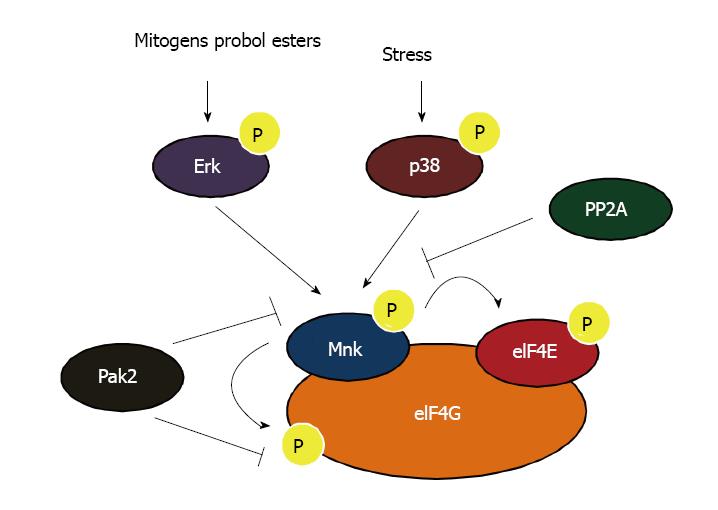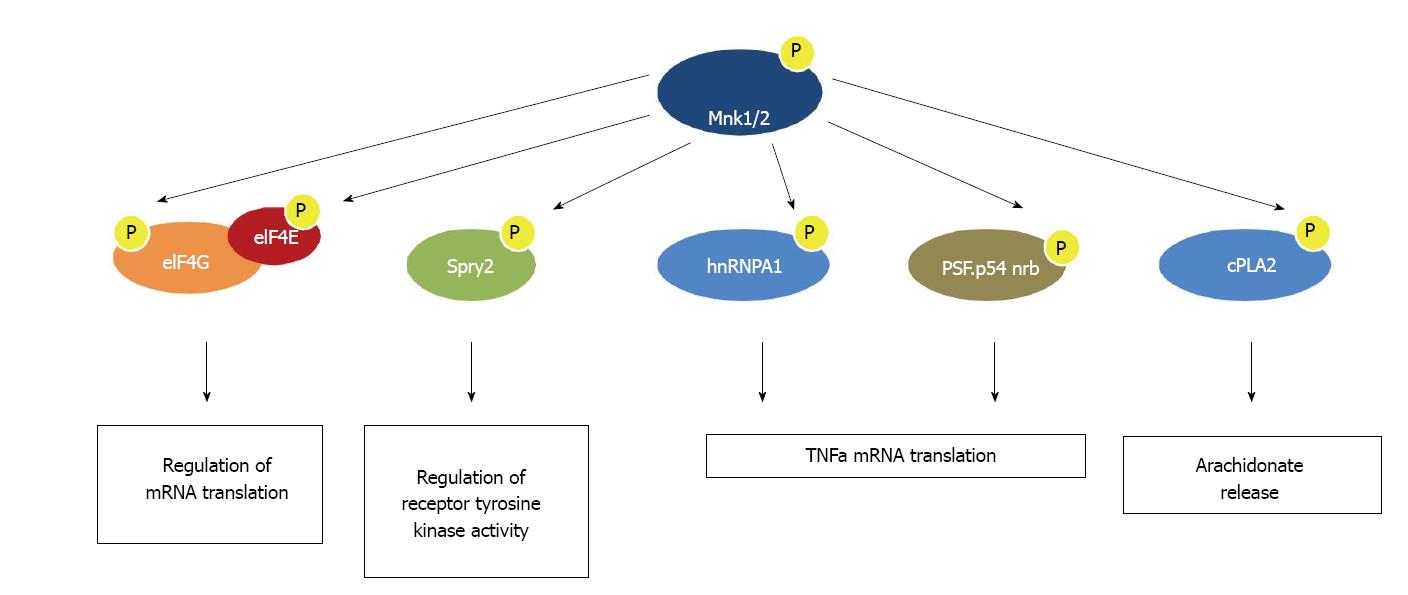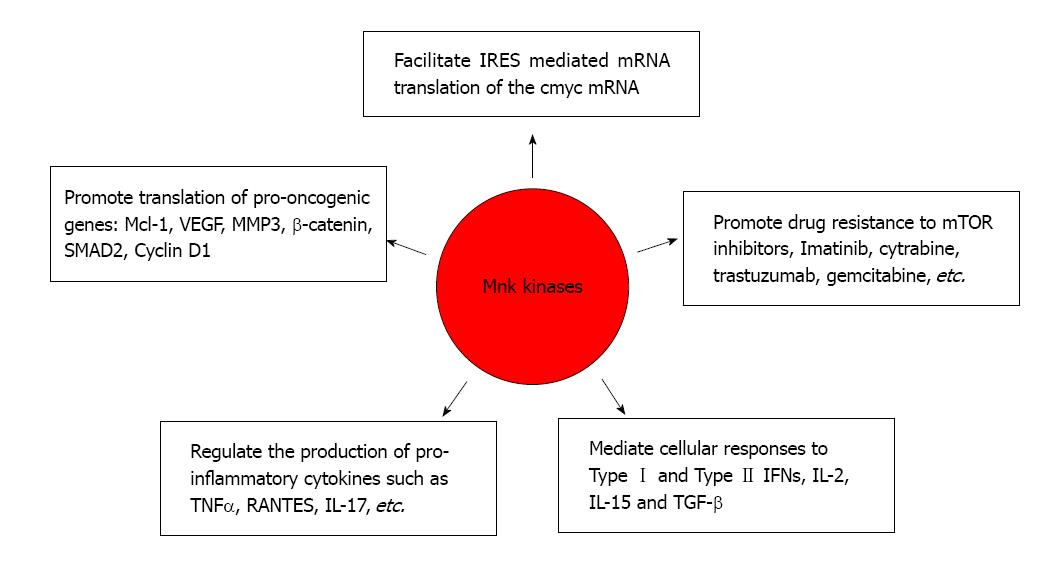Copyright
©2014 Baishideng Publishing Group Inc.
World J Biol Chem. Aug 26, 2014; 5(3): 321-333
Published online Aug 26, 2014. doi: 10.4331/wjbc.v5.i3.321
Published online Aug 26, 2014. doi: 10.4331/wjbc.v5.i3.321
Figure 1 Regulation of Mnk kinases.
The Mnk kinases are phosphorylated on Thr 197/202 by the p38 and Erk1/2 mitogen-activated protein kinases (MAPKs). They can associate with eIF4G and this interaction is essential for the efficient phosphorylation of their target eIF4E. The Mnk kinases are also known to phosphorylate eukaryotic initiation factor 4G (eIF4G) but its functional consequences remain to be determined. Pak2 can phosphorylate Mnk1 on Thr22/Ser27 resulting in decreased affinity for eIF4G and potentially interferes with Mnk1 mediated phosphorylation of eIF4E. Additionally Pak2 also phosphorylates eIF4G inhibiting its interaction with eIF4E. Protein phosphatase 2A (PP2A) is a phosphatase for Mnk1 and thereby negatively regulates Mnk kinase activity.
Figure 2 Effectors of the Mnk kinases.
The Mnk kinases can regulate multiple biological processes by phosphorylating multiple substrates. Mnk mediated phosphorylation of eIF4E and eIF4G can play an important role in mediating cap dependent translation. The Mnk substrates hnRNPA1 and PSF play an important role in mediating the translation of AU rich elements containing mRNAs such as the TNF-α mRNA. The Mnk kinases also phosphorylate cPLA2 which plays an important role in arachidonate release from platelets. TNF-α: Tumor necrosis factor-α; eIF4G: Eukaryotic initiation factor 4G; hnRNPA1: Heterogenous nuclear ribonucleoprotein A1; cPLA2: Cytosolic phospholipase A2.
Figure 3 Biological functions of Mnk kinases.
The Mnk kinases play an important role in multiple biological processes. Mnk1/2 can regulate tumor biology by mediating the translation of multiple genes that promote tumor growth and resistance to apoptosis. They also mediate resistance to chemotherapy as well as targeted therapy agents such as trastuzumab, imatinib, gemcitabine, etc. Mnk kinases are also implicated in regulating cap dependent translation of oncogenes as well as viral mRNA. Additionally the Mnk kinases play an important role in mediating the production of multiple pro-inflammatory cytokines such as TNF-α, RANTES and IL-17 and also mediate cellular responses to multiple cytokines such as Type I and Type II IFNs, IL-2, IL-15 and TGF-β. TNF-α: Tumor necrosis factor-α; IL: Interleukin; RANTES: Regulated upon activation normal T cell expressed and presumably secreted; TGF: Transforming growth factor; MMP3: Matrix metalloprotease 3; IRES: Internal ribosome entry sites; IFNs: Interferons.
- Citation: Joshi S, Platanias LC. Mnk kinase pathway: Cellular functions and biological outcomes. World J Biol Chem 2014; 5(3): 321-333
- URL: https://www.wjgnet.com/1949-8454/full/v5/i3/321.htm
- DOI: https://dx.doi.org/10.4331/wjbc.v5.i3.321











